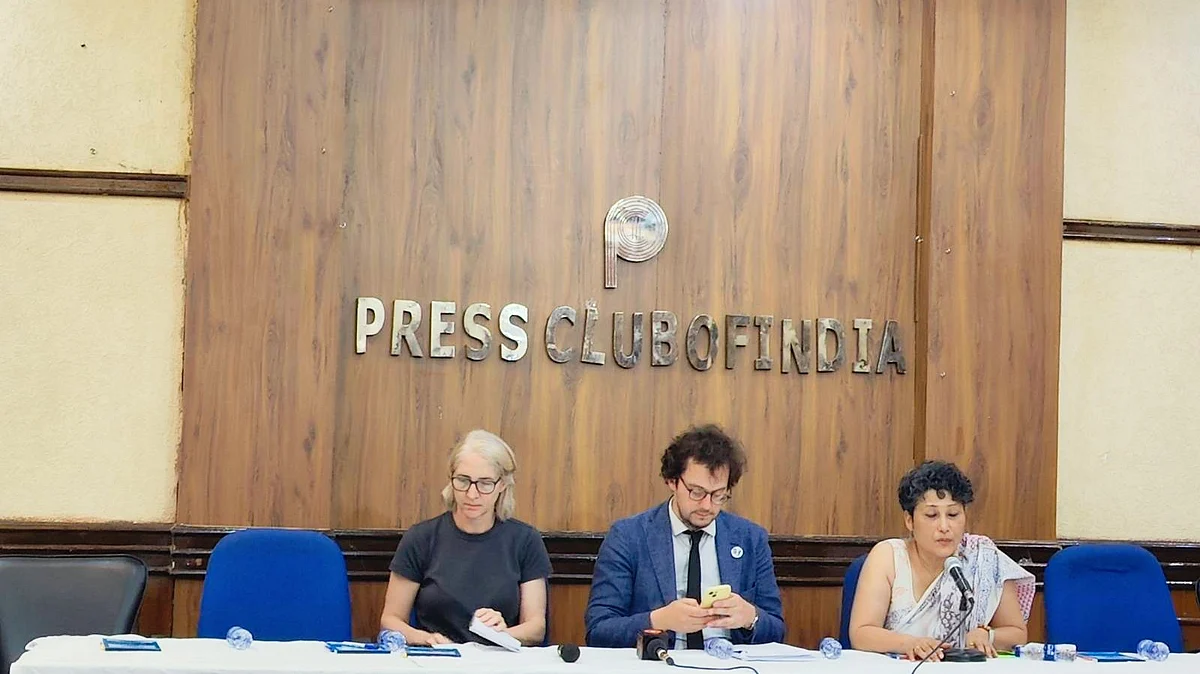Unofficial state of emergency: India 151st in global press freedom index
Nepal (90th), the Maldives (104th), Sri Lanka (139th), and Bangladesh (149th) — have all fared better than India

India continues to remain in the "very serious" category in the World Press Freedom Index, ranked 151 out of 180 countries, according to the latest report by Reporters Sans Frontières (RSF), translated into English as Reporters Without Borders.
Ironically, the report emerges a day after Bahubali Shah, co-owner of the influential Gujarati daily Gujarat Samachar, was detained by the Enforcement Directorate on charges of financial irregularities.
While the country has inched up from its 2024 ranking of 159, the marginal improvement does little to change the grim overall picture, the report noted.
RSF, which has been publishing the index since 2002, flagged growing concerns over the concentration of media ownership in India, warning that the dominance of political influence over the media landscape is eroding media plurality.
What is more worrying is that India's neighbours — Nepal (90th), the Maldives (104th), Sri Lanka (139th), and Bangladesh (149th) — have all fared better than India in the press freedom index.
India ranks above only Bhutan (152nd), Pakistan (158th), Myanmar (169th), Afghanistan (175th), and China (178th).
Globally, Norway, Estonia, and the Netherlands retained the top three positions in the index.
Addressing media at Press Club of India on Friday, RSF director Thibaut Bruttin said “two-three journalists are being killed in India” for the last 30 years.
He pointed out that “in India, politicians undermine the legitimacy of journalists and journalism in order to serve their agenda”. He also said "economic fragility is a leading threat to press freedom".

Notably, in its India section, RSF observed that the country's media has effectively slipped into an "unofficial state of emergency" since Narendra Modi assumed power in 2014, forging what the report calls a "spectacular rapprochement" between the ruling Bharatiya Janata Party (BJP) and the country's media-owning business elites.
The report singled out Reliance Industries chairman Mukesh Ambani, who reportedly controls over 70 media outlets reaching more than 800 million Indians.
Similarly, the Adani Group's acquisition of NDTV in 2022, led by industrialist Gautam Adani — an ally of the prime minister — marked, according to the report, "the end of pluralism in the mainstream media".
RSF also pointed to the rise of what is now widely called 'godi (lap) media' — news outlets accused of blending populism with unabashed pro-government propaganda.
"The Indian model of a pluralist press is being hollowed out through sustained pressure and influence," the report said, adding that Modi avoids unscripted press conferences, grants interviews only to friendly media, and is openly hostile towards critical journalists.
The report also highlighted that dissenting voices in the media are frequently targeted by harassment campaigns, often driven by BJP-affiliated online troll armies.
Follow us on: Facebook, Twitter, Google News, Instagram
Join our official telegram channel (@nationalherald) and stay updated with the latest headlines
